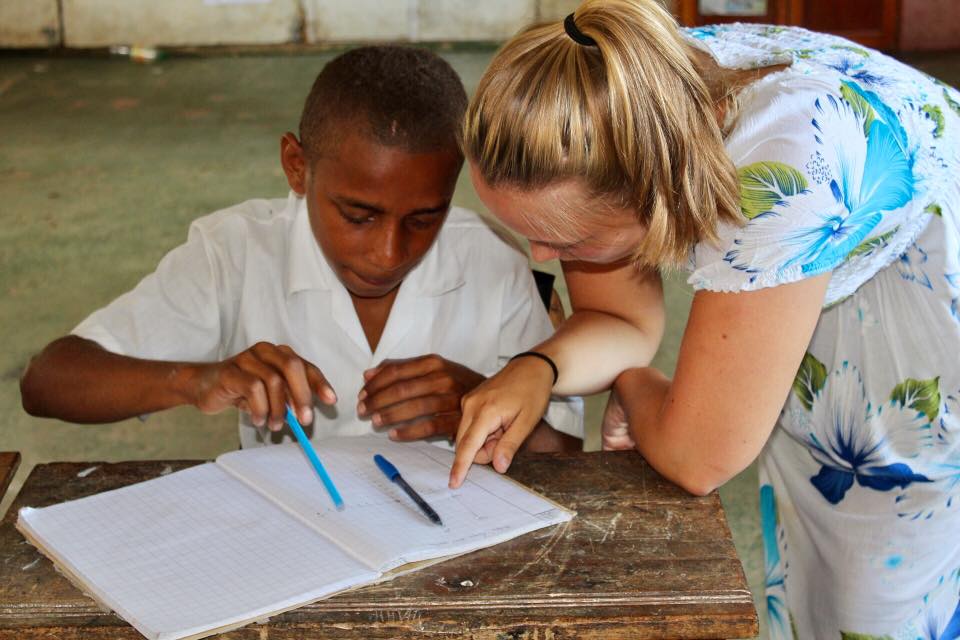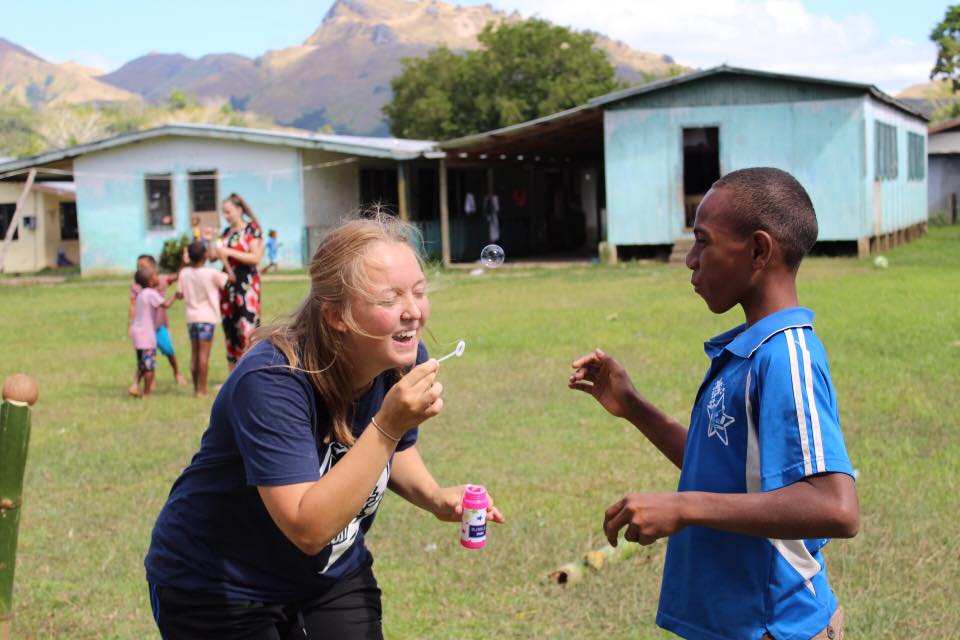
Here at Think Pacific, one of our key aims is to empower students through international learning experiences. Located throughout Fiji, our projects are designed to have tangible benefits for local communities as well as giving students an unrivalled, hands-on learning experience, that gives them skills to help with career opportunities and personal development.
From volunteering to placements and internships, there are many ways students can approach international travel to broaden their horizons. Another way to combine meaningful travel with educational development is the concept of “international service learning.”
International service learning (ISL) is a beautiful blend of volunteering and education. It celebrates the value of hands-on and experiential learning to complement academic theory. It gives students a chance to put theory into practice while having a meaningful impact on communities around the world.
Academic theory and studying in the classroom can only go so far in preparing students for real world opportunities and challenges. Over the last decade, we’ve seen just how valuable it can be for students to engage with real communities that have their own unique ways of life, challenges and beliefs.
Unlike general volunteering, international service learning is still fundamentally an academic learning experience. It just achieves this in a unique setting whereby experiences and local interactions help shape and support the learning for students.

What Does International Service Learning Look Like?
International service learning can be defined as a structured academic experience overseas, whereby students support and engage in activities that will help with the local community. This is done in a way that empowers students with a newfound understanding of global communities, challenges and opportunities.
Unlike similar programmes whereby students stay in their home country, international service learning helps promote global citizenship. By going overseas, students become aware of global issues and challenges, becoming global citizens. Particularly for students going to developing countries, the contrasts to their home life can be vast and give them a new perspective on life.
International service learning is immersive and experiential. This means students gain a true understanding of different cultures and engage in different aspects of everyday life. It is transformative for both students and local communities.
One of the key outcomes of ISL is to benefit from students who have experienced different cultures and walks of life, to then return home and have a greater understanding and commitment to community service and global challenges.
International service learning isn’t another word for study abroad programmes or overseas learning. It is a much deeper experience that really connects students to local communities. It is community-driven and leads to tangible benefits for both students and host countries.

Difference Between ISL and Volunteering
Although volunteering can itself achieve lots of the outcomes of ISL, there are some differences that define the benefits of ISL.
A student could do sports coaching as part of a volunteer project or gap year, helping support community development in the process. With ISL, students studying a related degree, such as sports science, can use the experience of sports coaching abroad to gain practical and real world examples that complement their studies. This could include designing coaching sessions and reflecting on how they could support the specific requirements of those being coached. The local communities benefit from the sports coaching and the student benefits from an experience that helps support their studies in a way that is reflective and thought-provoking.
International service learning helps students gain professional and transferable skills, leading to better job prospects. This adds to the fundamental benefit of ISL being the perfect vehicle to transition academic learning into real-world activities.
International Service Learning and Think Pacific
The underlying themes and characteristics of international service learning perfectly reflect our ethos and values here at Think Pacific. We pride ourselves on projects in Fiji that are immersive in true Fijian culture and community. Our students gain unique insights and personal development through projects that encourage problem solving, curiosity, teamwork, leaderships and commitment.
All our projects address real community needs in rural Fiji and offer students a unique, immersive experience to live with and support local communities. We are wholeheartedly committed to community development and immersive experiential education that gives students practical, hands-on experiences.
If you are looking for international service learning programmes or opportunities, get in touch with us today to learn about how we could guide you through the Fiji Islands.
So, together let’s create transformative experiences overseas that help celebrate the importance of community, experiential learning and global citizenship 🙏 🌍



